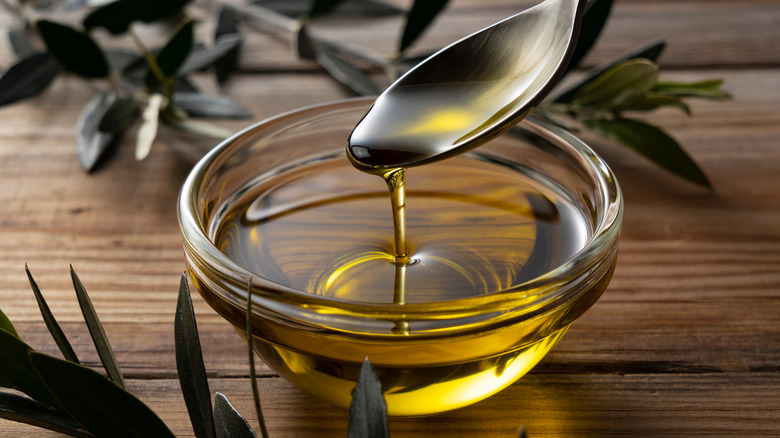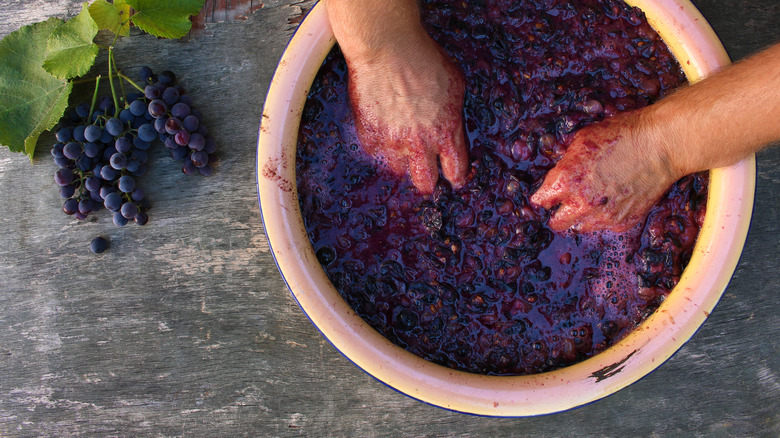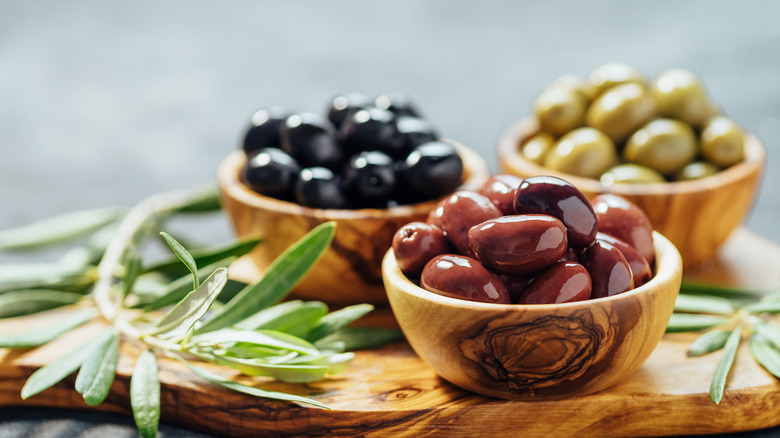Ancient Egyptians Made Wine And Olive Oil Thanks To The Torsion Method
Just as we thank the ancient Romans for their contributions to modern life, we must also pay our respects to the ancient Egyptians for their influence on how we live today. While it's obvious that our way of life differs vastly from the world that the ancient Egyptians lived in and that some aspects of their culture may seem controversial or completely alien to us today, to say that the Egyptians of that time weren't human-like any of us wouldn't be true. Ancient Egyptians, for instance, were fans of many board games, such as Senet and Hounds and Jackals (via The Metropolitan Museum of Art). Despite being separated by countless millennia, the ancient Egyptians ate, worked, entertained, and studied just as we do today.
And just like how we love cracking open a cold one today, the Egyptian peoples were also huge fans of beer – to the point that it was both a symbol of divinity and a common drink for laborers, The British Museum explains. While beer and games certainly weren't the only parts of Egyptian culture, it shows how human these people were even centuries ago. Much like how we enjoy wine and olive oil with our complimentary bread when we go to restaurants, the ancient Egyptians also enjoyed wine and oil in significant quantities. And they used a particular method — the torsion method — to make their wine and olive oil.
What was the torsion method?
Like many things today, olive oil and wine are produced through industrial methods, with olive oil going through a process of presses, centrifuges, and millers to meet its vast demand today (via MadeHow). While the ancient Egyptians didn't exactly have access to the machinery and technological advancements we enjoy today, their culture employed another method to produce wines and olive oils to feed their great population.
As Sapiens explains, the torsion method basically means extracting liquids from crushed fruits, such as grapes for wine and olives for oil, using a large permeable "bag." This woven bag would be filled with crushed fruit with two long sticks inserted through both ends. These sticks would then be twisted or moved back and forth, crushing the fruit between them while the liquid seeped through the bag's permeated surface. In more modern terms, it's like putting a bunch of grapes or olives inside some cheesecloth, taking a mallet, and smashing the fruit until the juice drips out.
While this wasn't the only method of production, it seemed to be one of the most popular. Sapiens notes that there is evidence that the torsion process lasted well beyond the time of the ancient Egyptians, going so far as twentieth-century Italy if some illustrations are to be believed.
Did the ancient Egyptians have any recipes for olive oil?
If you've figured out the different olive oil and wine preparation methods, it's safe to say you probably have some recipes for making it. After all, if you're spending time crushing olives in a bag, you probably need to know what to do with it afterward.
According to InsideHook, it seems that the torsion method itself is a pretty straightforward recipe for making olive oil. When modern archaeologists replicate the technique, the process produces a basic but delicious type of fresh-squeezed olive oil. Although this may sound anticlimactic, considering one would think the ancient Egyptians would be far more decadent with their oil, olive oil wasn't just used for eating. Olive oil was, according to Marbrin, used for a wide variety of daily applications, ranging from fuel for light sources to being used in personal hygiene. While flavoring the oil would no doubt be good for eating, the flavor wouldn't matter when you were burning the oil to keep the lights on.
As for wine, the ancient Egyptians were a bit more reserved in using it. In fact, their storage methods, which involved keeping the wine in elaborate underground wine cellars that even boasted their own ingenious form of temperature control, per Yahoo! News, are strikingly similar to the storage methods we employ today when producing wine.


